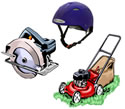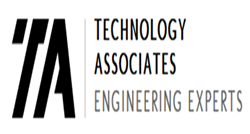 An end user of a product expects that a given product will not only function as intended, but will be safe from non-obvious hazards. Based upon decades of experience with mishaps during use of common and specialized equipment, thousands of standards have been developed for many consumer products and industrial equipment. Numerous organizations exist, e.g., ANSI, ASTM, SAE, and ASME, that regularly review and update these standards.
An end user of a product expects that a given product will not only function as intended, but will be safe from non-obvious hazards. Based upon decades of experience with mishaps during use of common and specialized equipment, thousands of standards have been developed for many consumer products and industrial equipment. Numerous organizations exist, e.g., ANSI, ASTM, SAE, and ASME, that regularly review and update these standards.
Expertise
We have extensive experience with many types of products including:
- Gardening, automotive, commercial, agricultural, medical, playground, gymnasium, food preparation, heating and cooling equipment
- Helmets, shopping carts, furniture, household and kitchen appliances, power tools and packaging
- Extensive product safety and standards reference library
Questions Answered
Through scientific analysis, we can help you answer pertinent questions such as:
- How do you determine if there is an applicable product standard?
- How do you efficiently locate and obtain a particular standard?
- Does a product's compliance with a standard automatically guarantee that it is safe?
Case Examples
Lawn Tractor Fire:
A lawn tractor tipped over trapping its rider under it. While on its side, gasoline trickled from an air hole in the gas cap onto the surrounding area. Eventually, the spilled gasoline fumes ignited, severely burning the operator's legs. We demonstrated how the addition of a simple gasoline supply shut off valve for the air hole when the tractor is rolled on its side would have avoided the fire. Afterwards the manufacturer offered a $1 million settlement.
Alleged Elevator Door Defect:
A woman exiting an elevator claimed that the door closed too forcibly on her knee as she was exiting the car, seriously injuring her. Our testing revealed that the elevator door closed with reasonable speed, energy and force levels, and that her injuries could not have been caused by the closing of the subject elevator door.
Kristopher J. Seluga, PE, is a Mechanical Engineering, Accident Reconstruction, Biomechanics, and Safety Expert with over 20 years of experience. He received his Bachelor's and Master's degrees from the Mechanical Engineering department at MIT where he worked on the development of novel three-dimensional printing technologies. Mr. Seluga is also a licensed Professional Engineer in New York and Connecticut, and has served as a member of the ANSI engineering committee for the Z130.1 and Z135 standards for golf cars and PTV's. His research interests and peer reviewed publications span the topics of Motor Vehicle Dynamics, Product Safety, and Biomechanics.
©Copyright - All Rights Reserved
DO NOT REPRODUCE WITHOUT WRITTEN PERMISSION BY AUTHOR.



 An end user of a product expects that a given product will not only function as intended, but will be safe from non-obvious hazards. Based upon decades of experience with mishaps during use of common and specialized equipment, thousands of standards have been developed for many consumer products and industrial equipment. Numerous organizations exist, e.g., ANSI, ASTM, SAE, and ASME, that regularly review and update these standards.
An end user of a product expects that a given product will not only function as intended, but will be safe from non-obvious hazards. Based upon decades of experience with mishaps during use of common and specialized equipment, thousands of standards have been developed for many consumer products and industrial equipment. Numerous organizations exist, e.g., ANSI, ASTM, SAE, and ASME, that regularly review and update these standards.








